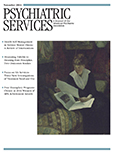2014 APA Achievement Awards: Four Exemplary Programs
Gold award: community-based program
High school students whose education is interrupted, however briefly, because of a mental health emergency are disproportionately likely to drop out of school. In 2004, the Brookline Community Mental Health Center in Brookline, Massachusetts, launched the Bridge for Resilient Youth in Transition (BRYT) to help local youngsters complete school after a mental health crisis. The idea is simple—provide a slow, steady transition back to school so students can receive the treatment and academic support they need to graduate with their peers. Working under the supervision of program director Henry White, M.D., who serves as clinical director at the CMHC, two school-based clinical coordinators provide clinical, academic, and family support for four to eight weeks. At first, the students spend most of their time in a classroom off the main lobby known as home base. As their condition improves, they return to their regular classrooms but may visit home base whenever they wish. A full-time classroom aide helps students organize and complete assignments. Since the program’s launch, 17 other high schools in Massachusetts have adopted the BRYT model. Altogether, as many as 1,500 high school students have enrolled, and 95% have graduated with their peers. In recognition of an innovative treatment model that smoothly integrates youths from intensive settings to community- and school-based care, BRYT was selected to receive the APA’s 2014 Gold Achievement Award in the category of community-based programs. A detailed description of the program is available in an online supplement.
Gold award: academically or institutionally sponsored
With the proliferation of AIDS in 1984, the AIDS Health Project was begun to help San Francisco’s gay community cope with the epidemic’s mental health consequences. Now known as the Alliance Health Project (AHP), this community-based program—a joint effort of the University of California San Francisco (UCSF) and the Psychiatry Service of San Francisco General Hospital—provides HIV-related behavioral health services to the lesbian/gay/bisexual/transgender/queer (LGBTQ) community. Thirty years ago, AHP was a pioneer in developing the noteworthy “San Francisco model of care,” which involves close collaboration with public health and community service organizations to provide not only HIV testing but also compassionate, respectful care and an array of supportive services, all available to patients at one site. AHP has provided HIV prevention, education, counseling, and psychiatric services to tens of thousands of HIV-infected men, women, and youths and their providers. More than 200,000 individuals have been treated, and more than 80,000 health care professionals, educators, and students have been trained. AHP is San Francisco’s primary LGBTQ mental health clinic and is committed to meeting the unique needs of the LGBTQ community, especially people living with chronic mental disorders. In recognition of its array of innovative programs to support the HIV and LGBTQ communities, the UCSF Alliance Health Project was selected to receive APA’s 2014 Gold Achievement Award in the category of academically or institutionally sponsored programs. A detailed description of the program is available in an online supplement.
Silver award
Early intervention in behavioral health problems can alter their trajectory. However, many pediatricians cannot provide adequate evaluation and treatment of behavioral health conditions. Integration of primary and behavioral health care in the pediatric medical home offers a solution. Since 2008, Children’s Community Pediatrics Behavioral Health Services (CCPBHS), located in Wexford, Pennsylvania, has overcome a host of challenges to build such a program. CCPBHS “embeds” licensed therapists, supervised by psychiatrists, in a growing network of pediatric practices. In recognition of its innovative program that has introduced a culture change across a practice network, CCPBHS was selected to receive APA’s 2014 Silver Achievement Award. A description of the program is available in an online supplement.
Bronze award
Primary care practices seeking to integrate behavioral health services may encounter children and families with complex needs. To achieve good outcomes, these practices need to partner with an agency that can prepare these children and families to receive and benefit from services. LifeWorks Shared Psychiatric Services (SPS), based in East Austin, Texas, is such an agency. Since 2011, SPS has been providing psychiatric diagnosis and treatment, care coordination, and case management, with the goals of transitioning clients to a medical home or long-term provider and a payer source. For its family-focused approach to creating a pathway to stable care for hard-to-reach families, LifeWorks SPS was selected to receive APA’s 2014 Bronze Achievement Award. A description of the program is available in an online supplement.



